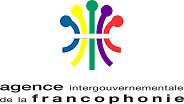(English) A Development View on Information Commons and Intellectual Property
A. Objectives of the meeting
The relationship between property on the one hand and innovation, knowledge and creation on the other has a deep impact on the organisation of our world.
The rules that govern the attribution of intellectual property rights are supposed to define a balance between the interests of creators, innovators, producers, distributors and the public. However these rights are amazingly changing, under the combined impact of globalisation and the intense spreading of information technology. The "Declaration of Geneva" recently released by a world coalition seeking to extend the information commons, as well as the positions taken by a few southern governments within WIPO (World intellectual property organisation), show that the present extension of IPR and their enforcement mechanisms is not the only possible path.
The recent evolution of intellectual property rights within international texts (e.g. TRIPS at the OMC, WIPO reform, convention for cultural diversity at the UNESCO, declaration of the WSIS...) perpetuates the Northern domination on the people of the South.
Vis-à-vis that situation, various movements resist these processes and work out alternatives : prohibition of GMOs, promotion of the free software, defence of the rights of medical patients, cultural diversity...
Two main ideas connect what is at stake in these matters :
![]() the first one is "information" : this new dimension of the matter, which the human being is able today to decode and replicate transforms the very way in which can reflect upon the future of our societies : the genome of a plant, the molecule of a drug, the code of a software, the work of a writer, are the signs, vectors of the information, around which our “knowledge societies” structure themselves.
the first one is "information" : this new dimension of the matter, which the human being is able today to decode and replicate transforms the very way in which can reflect upon the future of our societies : the genome of a plant, the molecule of a drug, the code of a software, the work of a writer, are the signs, vectors of the information, around which our “knowledge societies” structure themselves.
![]() the second one is called "property" : how can the production, creation, dissemination, circulation of this information be organised ? According to which economic model ? Does this information belong to private property or to the commons ?
the second one is called "property" : how can the production, creation, dissemination, circulation of this information be organised ? According to which economic model ? Does this information belong to private property or to the commons ?
For the critical movements, it is time to rebalance the international game by a true recognition of information commons. We are going through a political moment of change, and we must go towards a united approach of those issues. As active players in the information society, how can we put the rules of property and access and exchange at the service of a balanced human development ?
On the first of April, we will be sharing knowledge and alternatives with 3 main purposes :
![]() to unravel the various aspects of the human development in relation with IPR (patents, trade mark, copyright...) in the context of the information society ;
to unravel the various aspects of the human development in relation with IPR (patents, trade mark, copyright...) in the context of the information society ;
![]() to evaluate their consequences on living conditions, in particular in the developing countries ;
to evaluate their consequences on living conditions, in particular in the developing countries ;
![]() to identify political arenas in which development-oriented NGOs, social movements and citizens must invest themselves and try to articulate their actions.
to identify political arenas in which development-oriented NGOs, social movements and citizens must invest themselves and try to articulate their actions.
B. Program of the meeting
8h30 Welcome
9h00 to 9h15 : Opening
9h15 to 10h45 : Workshop A : Health and intellectual property
The unequal access to drugs in the world is the most obvious demonstration of the ever sharper tensions between health seen as a commodity and health seen like a global public good. The TRIPS agreements (Trade-Related Aspects of Intellectual Property Rights), that harmonise and harden patents, were elaborated under the pressure of the large pharmaceutical laboratories. It is through the increased role and scope of patents that Research and Development (R&D) has become increasingly driven by the private sector and that the "90/10" rule has become reality : 90% of the efforts of research and development are targeted on only 10% of the world needs.
Moderator : Florent Latrive
Speakers :
![]() Bernard Pécoul, director of Drugs for neglected diseases initiative (DNDi)
Bernard Pécoul, director of Drugs for neglected diseases initiative (DNDi)
![]() Philippe Pignarre, ex executive of Sanofi, editor, and author of the "Great secret of the pharmaceutical industry".
Philippe Pignarre, ex executive of Sanofi, editor, and author of the "Great secret of the pharmaceutical industry".
![]() Benjamin Coriat, health economist
Benjamin Coriat, health economist
![]() Gaelle Krikorian, consulting for Act Up, ALCS (Morocco), REDS (Cameroun), CPTech (US)
Gaelle Krikorian, consulting for Act Up, ALCS (Morocco), REDS (Cameroun), CPTech (US)
11h00 to 12h30 Workshop B : Agriculture, traditional knowledge, biopiracy and intellectual property
TRIPS Agreements, the CDB (Convention on Biological Diversity) or ITPGRFA (International Treaty on Plant Genetic Resources for Food and Agriculture) have direct effects on the activity of the farmers of the world. The risk taken with GMOs is directly linked to the patents’ system, dominated by Northern countries. The patentability of life goes hand in hand with the reduction of seeds and domestic animal species’diversity. The thousand-years-old work of peasants and indigenous people, to select medicinal cultures and plants, is nowadays cornered by the Northern companies and universities, in a vast movement of biopiracy.
Moderator : Valérie Peugeot
Speakers :
![]() François Dufour, country Confederation
François Dufour, country Confederation
![]() Frédéric Thomas, IRD.
Frédéric Thomas, IRD.
![]() Pierre Castella, CRID / Fondation sciences citoyennes
Pierre Castella, CRID / Fondation sciences citoyennes
![]() Suman Sahai, GENE CAMPAIGN
Suman Sahai, GENE CAMPAIGN
12h30 to 14h00 : Lunch
14h00 to 15h30 Workshop C : Seek, industry and patents
Patents are one the key mechanisms set up by Northern countries in order, as Ha-Joon Chang wrote, "to kick away the ladder” before Southern countries can climb it to achieve their development. But today, the interrogation regarding the role of the patents goes well beyond this element :
![]() The strong exclusive rights associated with patents impacts block derived innovation (i.e. innovation starting from the present state of technology). They also make much more difficult to implement other models of innovation, in particular commons-based cooperative innovation (free software, open science, co-operative selection and amelioration of vegetal varieties). It even hinders research itself, the patent exception for research being without real effect as soon as research targets a deployment of usage.
The strong exclusive rights associated with patents impacts block derived innovation (i.e. innovation starting from the present state of technology). They also make much more difficult to implement other models of innovation, in particular commons-based cooperative innovation (free software, open science, co-operative selection and amelioration of vegetal varieties). It even hinders research itself, the patent exception for research being without real effect as soon as research targets a deployment of usage.
![]() As many advocate a more qualitative view of development, the question is raised of the impact of patents on the targets of innovation themselves. Do patents encourage or discourage the research and development on technology useful for endogenous and sustainable development, or human-centred development ?
As many advocate a more qualitative view of development, the question is raised of the impact of patents on the targets of innovation themselves. Do patents encourage or discourage the research and development on technology useful for endogenous and sustainable development, or human-centred development ?
Moderator : Philippe Aigrain
Speakers :
![]() Mohamed Larbi Bouguerra, former director of the National Institute for Scientific and Technical Research for Tunisia, author of "Research against the Third World" and “The battles of water : for a common good of humanity".
Mohamed Larbi Bouguerra, former director of the National Institute for Scientific and Technical Research for Tunisia, author of "Research against the Third World" and “The battles of water : for a common good of humanity".
![]() Jamie Love.
Jamie Love.
![]() Cheick Oumar Sagara, University of Bamako, project leader C3LD-MALI.
Cheick Oumar Sagara, University of Bamako, project leader C3LD-MALI.
![]() Michel Trometter, INRA.
Michel Trometter, INRA.
15h45 to 17h15 Workshop D : Knowledge, creation and intellectual property
The collective organisations of the great functions of circulation of knowledge and culture meet the needs for development in the South : schools, libraries, dissemination of the results of research. Creation can be stimulated by these infrastructures as well as they can facilitate the adaptation of dissemination networks to the local specificity, in the respect of cultural diversity. The on going world agreements, far from going in this direction, reinforce the domination of northern industries of cultural products, media and large universities. How can we today, develop an equitable use of cultural resources for the benefit of the developing countries, and set up modeles of exception going in this direction ? How the authors, creators and intellectuals of Southern countries can build upon a self declared public domain, through licences such as the Creative commons like ? How can they , create their own networks to exchanges knowledge and culture between Southern countries as well as from the South towards North ?
Moderator : Herve Le Crosnier
Speakers :
![]() Pascal Renaud, IRD, Vecam
Pascal Renaud, IRD, Vecam
![]() Jean-Claude Guédon, University of Montréal
Jean-Claude Guédon, University of Montréal
![]() Claudine Belayche, (Association of the French-speaking librarians) : to support the access socialized to the reading.
Claudine Belayche, (Association of the French-speaking librarians) : to support the access socialized to the reading.
17h30 with 18h30 : Closing plenary
The closing plenary will be devoted to decoding the international negotiations in progress around the issues dealt with throughout the day and identifying the next political appointments which can constitute as many points of convergence for the movements which resist the monopolisation of knowledge.
Moderator : Valérie Peugeot
Key note speakers :
![]() Suman Sahai
Suman Sahai
![]() Jamie Love
Jamie Love
![]() German Velasquez, Associate Director Department of Technical Co-operation for Essential Drugs and Traditional Medicine the World Health Organization (WHO)
German Velasquez, Associate Director Department of Technical Co-operation for Essential Drugs and Traditional Medicine the World Health Organization (WHO)
C. Organizing and credits
The meeting of April 1, 2005 is an initiative of the French non for profit organisation Vecam.

The Steering Committee are : Philippe Aigrain (Sopinspace), Florent Latrive (Escape), Herve Crosnier (University of Caen), Nicolas Taffin (C&F Editions), Pascal Renaud (IRD and Vecam), Nicolas Casadevall, Veronique Kleck and Valerie Peugeot (Vecam), Didier Oillo (Mosaïque du monde).
This initiative is carried in partnership with the magazine Transversales sciences culture, C&F Éditions, the Mosaïque du monde, APRIL and Fondation Sciences Citoyennes associations.
![]()




If your organization wishes to join to this initiative and its preparation, do not hesitate to contact Valérie Peugeot (vecam).
This meeting is supported by the “Intergovernmental Agency of the Francophonie” thanks to which the participation of foreign speakers is possible.

The meeting will take place in the ENST, École Nationale Supérieure des Télécommunications, which gracefully offers its venue for the meeting. Address : 46 Street Barrault 75013 Paris. Underground : Corvisart.

Possibility to have lunch on the spot.
The inscriptions are free of charge and are done on line through http://www.vecam.org
Inscription to open meeting (french)
©© Vecam, article sous licence creative common


 Activités
Activités 2005 Rencontre du 1er Avril : Le développement face aux biens communs de (...)
2005 Rencontre du 1er Avril : Le développement face aux biens communs de (...) Imprimer la page
Imprimer la page